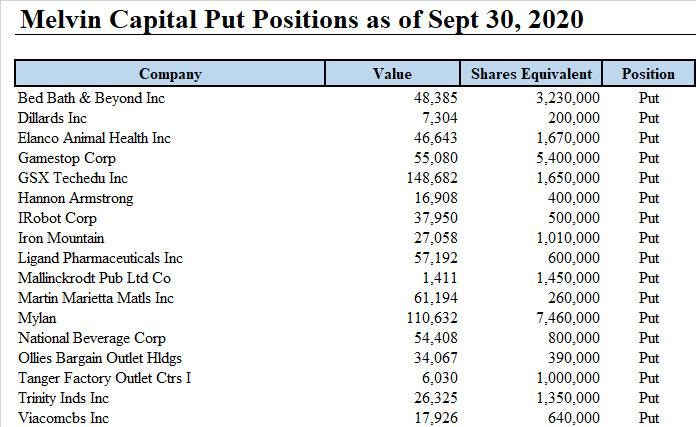Malt Liquidity 26
The E! Network, and Citadel Chicanery
Keeping an Eye on Elon
Yea.
I am not really sure what to make of Elon-chan as the new Tokyo Joe. Elon Musk’s twitter is “Keeping up with the Kardashians” but for bored Robinhooders. TSLA shares might as well be publicly traded Musk Patreon subscriptions at this point, and I truly wonder how far this can go.
For example, if earnings go well tomorrow:
@elonmusk - money in the bank, pimpin ain’t easy
>>> BAC up 15% on Elon tweet
If Elon decided to spend even more of his stimulus check on Etsy dog toys:
@elonmusk - I ordered express shipping, but nothing’s shown up for a week. WTF?
>>> AXP down 7% in premarket trading on Elon tweet
If Elon has a rough night and decides to subtweet some moody lyrics:
@elonmusk - And I swear that I don’t have a gun…
>>> Mass chaos breaks out as people can’t figure out whether to short or long RGR, stock halted for volatility
The power of the Twitter Elonian ranch is astonishing. Etsy is a 25 billion dollar company being bid up 10%+ in pre-market because a billionaire tweeted about buying a dog toy! Peyton Manning plugging Budweiser to the entire Super Bowl audience of 100 million viewers was probably only worth $15-20 million in exposure alone - the Elon tweet stock rocketship is worth at least a couple billion, judging from ETSY’s pre-market movement and by the fact that SIGL still trades at a market cap of 200 million or so, down 90% from its highs.
Billionaire Boys Club
A particularly hilarious consequence of the GME stock movement is how much heat that specifically Melvin Capital, an outfit run by an ex-SAC portfolio manager, is taking. While all these hedge fund managers like to show off their historical knowledge and literary sensibilities, curiously, the one lesson that always fails to ingrain itself is that leverage is the most powerful drug known to mankind:
The other day, I wrote about how “when you manage large amounts of capital, you can’t just outright buy puts on stocks due to outsized risk of ruin”, and given the bailout currently being orchestrated by Steve Cohen (the SAC of SAC) and Citadel, it seems that this is exactly how Melvin was generating their “outsized returns”:
Citadel and its partners are investing $2 billion and Point72, which already had more than $1 billion invested in Melvin as of 2019, is investing an additional $750 million, the funds said Monday. As part of the deal, Citadel, its partners and Point72 are receiving non-controlling revenue shares in the firm that eventually expire, a person familiar with the deal said.
For Cohen, it makes sense - he was an original investor in the fund, the manager carries his reputation, and he obviously doesn’t want to get blown out. But I am particularly enthused at Citadel joining in - it seems like a really beautiful, OTC version of a classic convergence trade spread apart between two related but separate parts of markets. Think about it this way: GME has an insane amount of retail order flow, a large amount of which comes through Robinhood… whose order flow Citadel executes and profits from. The longer Melvin Capital remains afloat and memed about, the longer retail will continue to trade GME. Citadel’s AUM is well into the double digit billions - clearly, they can keep supplying cash to Melvin until the GME short becomes profitable, or at least break-even again, giving them short exposure without having to actually execute anything as they will get a share of Melvin’s current and future revenue (and presumably a much larger cut of future profits than the average investor, which will essentially be coming out of Melvin’s fees). I love this trade - indirect, offsetting exposure where they win on both sides as long as the rules of nature don’t endlessly continue to not exist. Even LTCM couldn’t have come up with a convergence trade this devious.
Again, I can’t understate how much fund managers like to show off that they read
Today's letter comes from Artisan Partners, and, of course, ends with a quote from “The Myth of Sisyphus”. Amidst the usual blather about retail, valuation not mattering, yada yada yada, I am a little sad that this is nowhere near as snarky as the letters from Friday. A Melvin of a letter, if you will. A much more interesting read is this podcast featuring none other than Paul Singer. It is kind of amusing how the microstructure perspective of markets and the value investing perspective of markets intersect at spread insensitivity and the relative worthlessness of holding cash - I, for one, would never argue that a stock needs to be tethered to reality in the form of its future cash flows when quite literally the entire inflows of the past few years have been “well, this cash is useless to hold on to, might as well chuck it into equities.” This is what ZIRP has wrought, and that’s where the intersection happens - the macro viewers will talk a lot about inflation risk, and I will continue talking about how giddy bidding can sort of just leave prices inflated and blow you out constantly and how the true “fiscal reality” move is to use the combination of cheap money and overvaluation to, you know, actually help your business.
I am not quite at “buy gold market crash incoming imminently” Ron Paul TV commercial level, but I am at the level where I highly, highly recommend pausing wherever you’re at on your book list and reading Manias, Panics, and Crashes, the equivalent for bubbles to what Natenberg is for options or what Fear and Loathing is to Las Vegas.
“Lovely sight, the Apocalypse! But absurdity, without limits? No Sir! there have to be certain limits...” - Louis-Ferdinand Céline
On that note…





